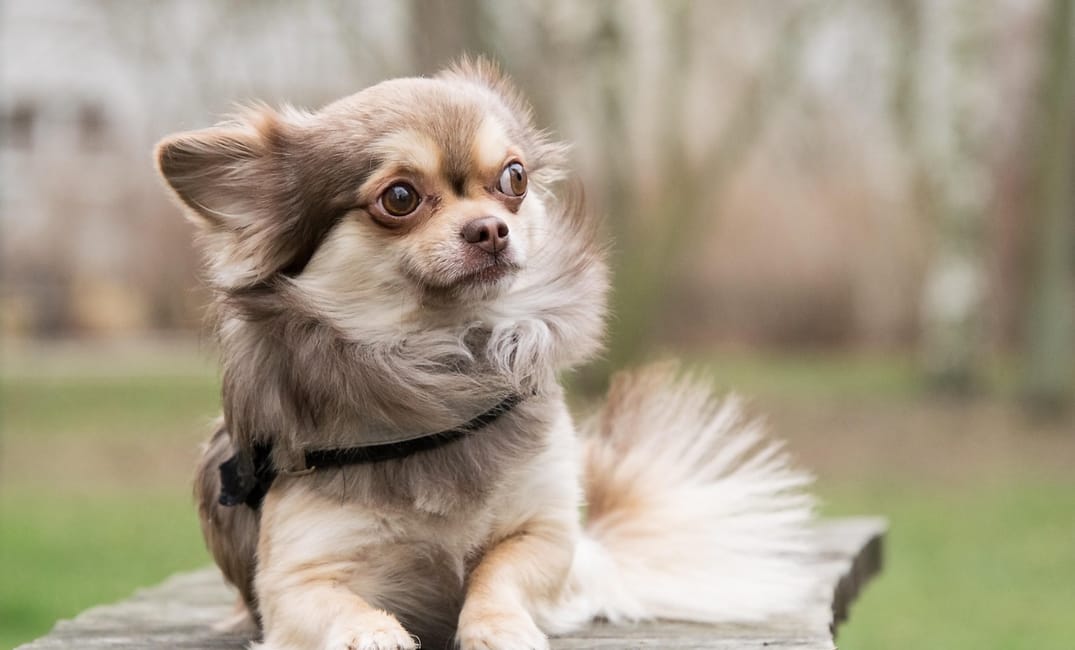Table of Contents
For many of us, Chihuahuas aren't just dogs. They are family. They fit perfectly into our arms and even more perfectly into our lives. Because they’re such tiny bundles of energy, it’s easy to imagine they’ll stay young forever. But like every dog, Chihuahuas eventually slow down. It’s natural to wonder: when is a Chihuahua actually considered a senior?
Let's take a closer look at how to recognize the signs of aging in these small but mighty companions.
Chihuahuas Age a Little Differently
Chihuahuas are known for their impressive lifespans. Many live well into their mid to late teens, and it’s not uncommon for some to celebrate their twentieth birthday. Because of their longevity, they tend to age more slowly than larger breeds.
In general, a Chihuahua is considered a senior around 10 to 11 years old. This might sound surprising if you’ve heard that most dogs are seniors at seven, but size plays a big role. Smaller dogs simply don’t age at the same speed as their bigger cousins. Of course, every dog is different. Some Chihuahuas show signs of aging earlier, especially if they’ve faced health challenges, while others seem puppy-like long after they hit the decade mark.
Signs Your Chihuahua Is Entering Their Golden Years
The signs of aging usually appear gradually, not all at once. You might notice your Chihuahua moving a little slower than usual, trading their energetic prance for a more leisurely stroll. They may spend more time napping during the day, choosing the comfort of a warm blanket over a game of fetch. Tiny gray hairs might begin to pepper their muzzle and the area around their eyes.
Some Chihuahuas develop stiffness or a slight limp as joint issues, like arthritis, start to make themselves known. You may also see changes in their senses — hearing might become less sharp, and they might startle more easily or have trouble following you by sound alone. On the emotional side, your usually spunky companion might become more clingy or, in some cases, a little more irritable.
Recognizing these signs helps you adjust to their changing needs, offering more comfort and understanding as they navigate this new stage of life.
Caring for a Senior Chihuahua
As your little one grows older, a few simple adjustments can make all the difference. A senior-specific diet can help maintain healthy weight and support aging joints. Regular vet visits, ideally twice a year, become even more important to catch any early signs of illness. Around the house, you might find it helpful to make things easier for them — soft bedding, ramps for climbing onto furniture, and food and water placed where they don't have to strain to reach.
Exercise still matters, but it should be gentle and regular rather than long or strenuous. Short walks help keep their muscles strong without overtaxing their small bodies. Most importantly, patience and tenderness go a long way. Senior dogs sometimes develop new quirks, but beneath it all, they are still the loyal hearts you’ve always known.
Embracing Their Senior Years
Watching a Chihuahua grow older carries a bittersweet beauty. These tiny dogs have been there through countless chapters of your life — through celebrations, struggles, quiet mornings, and late-night talks when they seemed to understand every unspoken word. Their devotion doesn’t dim with age; it only deepens.
Recognizing when your Chihuahua becomes a senior isn’t about marking a specific birthday. It’s about paying attention to their needs, adjusting how you care for them, and savoring the bond that often becomes even more profound with time. No matter how many years pass, they’ll always be your baby — and every moment with them is a gift.

